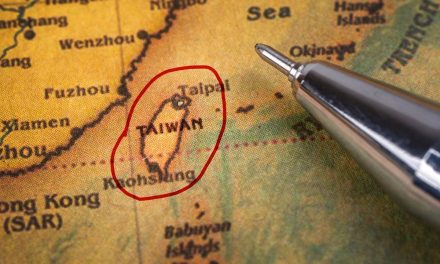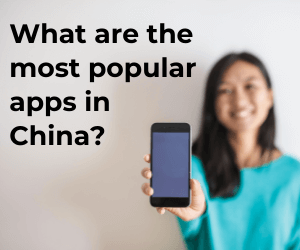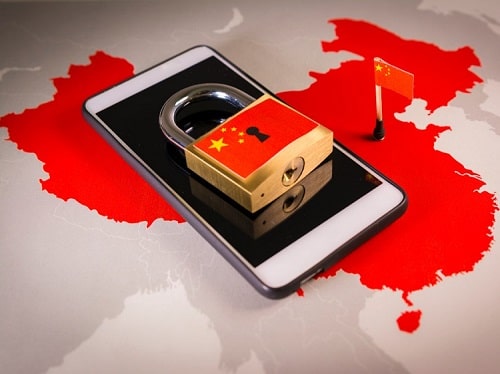Facebook needs no introduction. Everyone knows how important it has become.
But what if I told you that Facebook was blocked in China?
Yep. I’m sorry to say that it’s been banned in China for years.
If you want to use it, then you’re going to need a virtual private network on your devices (more on that later).
In short – is Facebook banned in China?
Yes, Facebook is banned in China.
This includes everything you can do on the app like share photos and videos, comment, send messages, and buy and sell stuff.
But the good news is there’s a way around the ban if you’re traveling to China.
Why is Facebook banned in China?
The Chinese government controls public access to the internet in the country.
It also deletes, restricts, and bans content that’s seen as sensitive or contrary to the interests of the Chinese Communist Party.
It does this through what’s known as the Great Firewall of China, which means you’ll get an error page if you try to go on Facebook.
Along with many other Western websites and platforms such as Google Maps, Facebook has been labeled a potential threat to the communist party and the Chinese government.
Actually, technically it’s Facebook’s parent company, Meta, that’s banned, and this probably won’t be changing in the future.
Facebook has been banned in China since July 2009. The main reason for the ban was the independence riots in Xinjiang. The independence activities used these sites as part of their communications network, so they were blocked in an effort to quell the riots.
It’s important to note that Hong Kong, Taiwan, and Macau still have access to Facebook and other Western sites under the Chinese mantra of One Country, Two Systems.
How to use Facebook in China
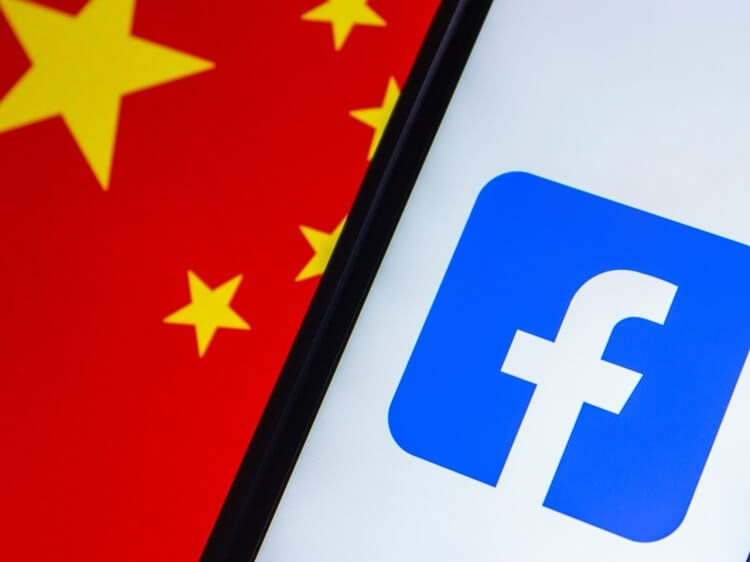
Fortunately, you can unblock Facebook in China. Image by Paparacy on Shutterstock.
I understand if you just can’t stay off Facebook while you’re in China. I’m hooked on social media too!
To access Facebook using your hotel’s Wi-Fi, you’ll need to use a virtual private network (VPN). This connects your devices to the VPN provider’s remote server.
When you use this connection, your data and IP address are encrypted. This allows you to bypass China’s firewall and access popular websites and apps that are usually blocked.
VPNs are usually monthly or yearly subscription services, and you’ll need to choose one and download it before landing in China.
I highly recommend you read this review of the best VPN for China because the cheap and nasty ones don’t work (let alone the free ones!).
Otherwise, you can skip the review and tap on the button below for the one I recommend the most.
Remember: Once you land, you won’t be able to sign up for a VPN anymore. You must do this before you jet off.
Is Facebook illegal in China?
No, Facebook isn’t illegal in China. It’s just subject to internet censorship.
This means that you don’t have to worry about the local police banging down your hotel door to enforce any Chinese laws when you’re uploading your holiday photos.
However, while you’re in China, make sure you avoid putting posts or comments on Facebook that are critical of the Chinese government.
Internet users who do this can face serious consequences from the authorities.
(If you want to find out more, read the article called Are VPNs legal in China?)
Chinese alternatives to Facebook
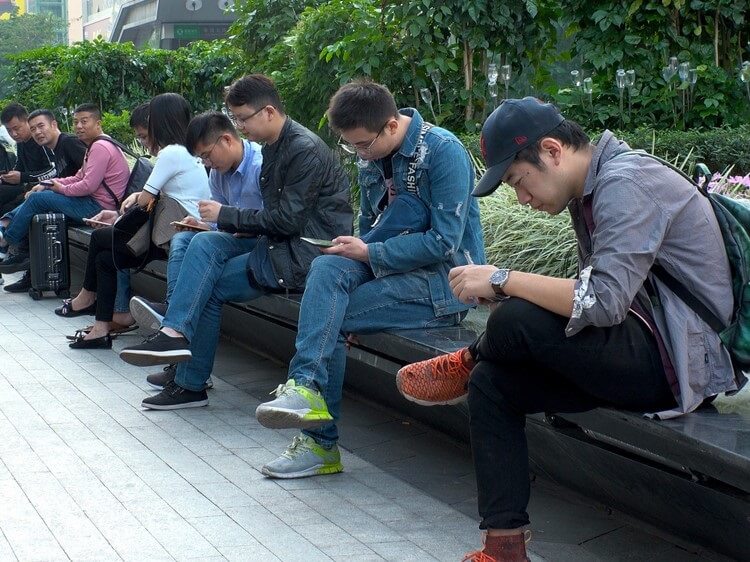
Chinese people love their homegrown apps. Image by StreetVJ on Shutterstock.
Although Facebook is banned, China does have its own social media platforms that fulfil many of the same functions for Chinese citizens.
While it’s not a direct copy of Facebook, WeChat has a Moments section where you can upload photos and videos, and comment.
There are also these Chinese apps which are similar to Facebook:
- Little Red Book known as Xiaohongshu
- Douyin (China’s version of Tik Tok) for short-form videos
- Kuaishou, a video sharing app that has live streamers.
However, you’ll need to be able to understand Mandarin to use these ones.
If you’re heading to China long term (like to teach English in China as I did), then I recommend you explore these Chinese apps.
It will help you become part of China’s online society, and your Mandarin may also improve!
Mike’s written an entire article about the top apps in China if you want to dig deeper.
Visiting China soon?
If you’re lucky enough to have a trip planned, I suggest having a look at the following helpful pages:
- China travel apps
- What to pack for China
- What not to bring to China (I wrote this one!)
Is Facebook banned in China: the takeaway
If you really need to use Facebook while you’re in mainland China, then get organized before you travel.
You must get a VPN if you want to use the internet via Wi-Fi. This will mean that you can keep posting your holiday pics on Facebook seamlessly, as well as stay connected to the outside world.
Remember to read the review of the best VPN for China or, if you’re ready to buy now, tap on the button below to get the best one for China that I recommend.
Of course, you can use your own data in China, but this could cost you a small fortune.
Have an incredible time in China, you’re going to have a blast!
Next, read my Beijing travel tips or keep scrolling down for more general info about using a VPN and accessing Facebook in China.
Main image credit: Paparacy on Shutterstock.
Benefits of using a VPN in China
With a VPN, you can access:
- Popular social media platforms such as Facebook, Instagram and YouTube
- All Google services including Gmail, Google Play, Google Drive and, of course, Google search results
- Foreign news outlets
- Other sites that the Chinese authorities doesn’t want you looking at.
There are other important benefits to having a VPN in China, too. You can:
- Protect your sensitive information and user data being accessed by hackers, advertisers, and internet service providers
- Stay anonymous and secure on public Wi-Fi networks
- Send and receive work files privately, without exposing your IP address
- Pay for things online easily and securely.
You can try a free VPN if you’re short on cash, but most likely it won’t work in China.
Only the paid ones are reliable. Trust me, I’ve lived in China!
How to use a VPN in China
You can get VPN apps for Android, Windows, iOS, MacOS, and Amazon Fire TV from the providers’ websites or from the App Store and Google Play. They’re usually available on a monthly or yearly basis.
Just make sure that the VPN you sign up for makes apps for all your devices if you want to access Facebook on your phone as well as your computer.
Here’s how to access Facebook in China with a VPN:
- Sign up for your chosen VPN, download it and install it on your device
- Open the app and sign in
- Select a server outside of China (Japan is usually a good, fast option for people in China)
- Hit the connect button for internet access and wait
- Open Facebook and use it as normal.
Sometimes your VPN won’t work, which is fairly normal in China.
Contact the VPN company, or refer to the VPN not working in China article for some helpful troubleshooting ideas.
FAQ about using Facebook in China
Why is Facebook not allowed in China?
The Chinese authorities want tight control of the narrative. They don’t want Western social media influencing its people and affecting social stability.
Is it illegal to use Facebook in China?
No, it’s just inaccessible unless you have a virtual private network (VPN). Most foreigners who visit China get a VPN so they can keep accessing Facebook as well as all the other major apps. There’s nothing in Chinese law that stipulates you can’t use Facebook.
What do Chinese people use instead of Facebook?
Chinese users can download other apps including WeChat, Douyin and Kuaishou.
Is Google still banned in China?
Yes, all Google services are banned and I can’t see that changing any time soon. Foreigners can use Bing in China but it’s a censored search engine. Online content in China is heavily regulated and moderated.
Can you access social media in China?
Yes, but it’s China’s own social media platforms. You’ll need a VPN if you want to access your favorite foreign social media site.



